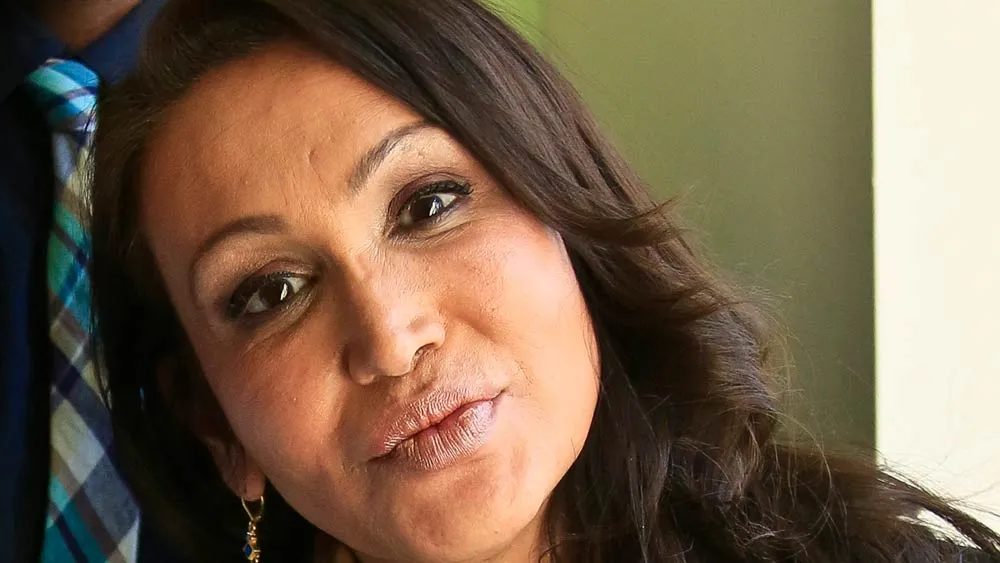January 23, 2013
40 Years After Roe v. Wade, Abortion Foes March On
Jason St. Amand READ TIME: 5 MIN.
Abortion opponents marked the 40th anniversary of the Roe v. Wade decision Tuesday with workshops, prayers and calls for more limits on the rights established by the Supreme Court in the landmark ruling that still defines one of the nation's most intractable debates.
Many in the anti-abortion movement looked to Kansas, where Republican Gov. Sam Brownback signed a series of tough anti-abortion measures during his first two years in office. Other states with GOP governors and Republican-controlled legislatures have taken similar steps.
"There's joy in what you're doing and keep it up," Brownback urged hundreds of fellow abortion opponents at a rally outside the Kansas Statehouse. "Keep marching. Keep moving."
Abortion-rights groups observed a quieter anniversary - a possible reflection of the reality that it's far rarer for lawmakers to expand access to abortion. The National Organization for Women planned a candlelight vigil at the Supreme Court to commemorate the 1973 decision, which created a constitutional right to abortions in some circumstances and prevented states from banning the practice.
President Barack Obama issued a statement reaffirming the decision's commitment to "reproductive freedom" and the principle that "government should not intrude on our most private family matters, and women should be able to make their own choices about their bodies and their health care."
The ruling "should be honored," said Rep. Emily Perry, a lawyer and Democrat from the Kansas City suburb of Mission who supports abortion rights. "I wish the amount of energy put into narrowing Roe v. Wade would be put into school funding or our budget."
In Topeka, at least 1,000 people rallied with Brownback and anti-abortion legislators. The Kansas governor has called on state lawmakers to create "a culture of life." He is expected to support whatever further restrictions they approve.
Kansans for Life, the most influential of the state's anti-abortion groups, plans to ask lawmakers to enact legislation ensuring that the state doesn't finance abortions even indirectly, such as through tax breaks or by allowing doctors-in-training at the University of Kansas Medical Center in Kansas City, Kan., to perform them on the center's time.
The group also wants to strengthen a state law dictating what information must be provided to abortion patients, banning abortions because of the fetus' gender and allowing wrongful-death lawsuits when a fetus dies because of an accident.
Comparable proposals are gaining ground elsewhere, too. Republican lawmakers in North Dakota are pursuing a measure to ban "sex selection" abortions. Alabama's GOP legislative majorities are looking to impose new health and safety regulations for abortion providers. And Republicans in Arkansas want to ban abortions after the 20th week of pregnancy.
"I think more of America is becoming more pro-life," said Dr. Melissa Colbern, who started a crisis pregnancy center in Topeka near the state Capitol last year. "I think maybe the culture is changing."
In Mississippi, where Republican Gov. Phil Bryant has said repeatedly that he wants the state to be abortion-free, advocates on both sides of the issue protested outside the state's only abortion clinic in the capital of Jackson. A large sign attached to the building declared: "This clinic stays open."
Nancy Keenan, president of NARAL Pro Choice America, said most citizens are not demanding their elected officials push for new abortion restrictions.
"A lot of these anti-choice politicians don't run on the issue," Keenan said in an interview Tuesday with The Associated Press. "They run on jobs, or they run on the economy. And then they show up in these state legislatures, and they begin to advance very anti-choice legislation."
In the four decades since Roe v. Wade, a series of court decisions have narrowed its scope. With each decision, lawmakers in multiple states have followed up by making abortions more difficult to obtain or imposing restrictions on providers.
According to the New York-based Guttmacher Institute, a reproductive-rights think tank, 135 laws aimed in some way at restricting access to abortion were enacted in 30 states - most of them with Republican-controlled legislatures - in 2011 and 2012. More such measures already have been proposed in several states this year.
In Wyoming, for example, a pending bill would prohibit abortions after a fetal heartbeat is audible. A similar "heartbeat" bill is pending in Mississippi, and one was debated but later sidetracked in Ohio last year.
In Texas, Republican Gov. Rick Perry has told lawmakers that he expects to make progress during the 2013 session toward his goal of making abortion "at any stage a thing of the past." Anti-abortion activists have pledged to use every legal means possible to make obtaining abortions difficult, if not impossible.
But Kansans for Life, the most influential abortion group lobbying state lawmakers in Topeka, eschews proposals designed to set up a head-on legal challenge to the Roe v. Wade decision, fearing the Supreme Court might wipe out some of the gains achieved by abortion opponents in recent years.
"We'd like to continue on our successful strategy," Kathy Ostrowski, the group's legislative director, said during a pre-rally news conference. "We feel that we're making better strides that way."
Tuesday's events won't be the only anniversary observances. The annual March for Life, which traditionally draws several hundred thousand abortion opponents to Washington, is scheduled for Friday.
Although bills to strengthen access to abortion are rare, there are some pending proposals in New York and Washington state.
In their state of the state speeches this month, New York Gov. Andrew Cuomo endorsed a bill that would further entrench the right to abortion, while Washington's new governor, Jay Inslee, said he wants to enact a measure that would require insurers who cover maternity care - which Washington insurers are mandated to provide - to also pay for abortions.
Both Cuomo and Inslee are Democrats.







